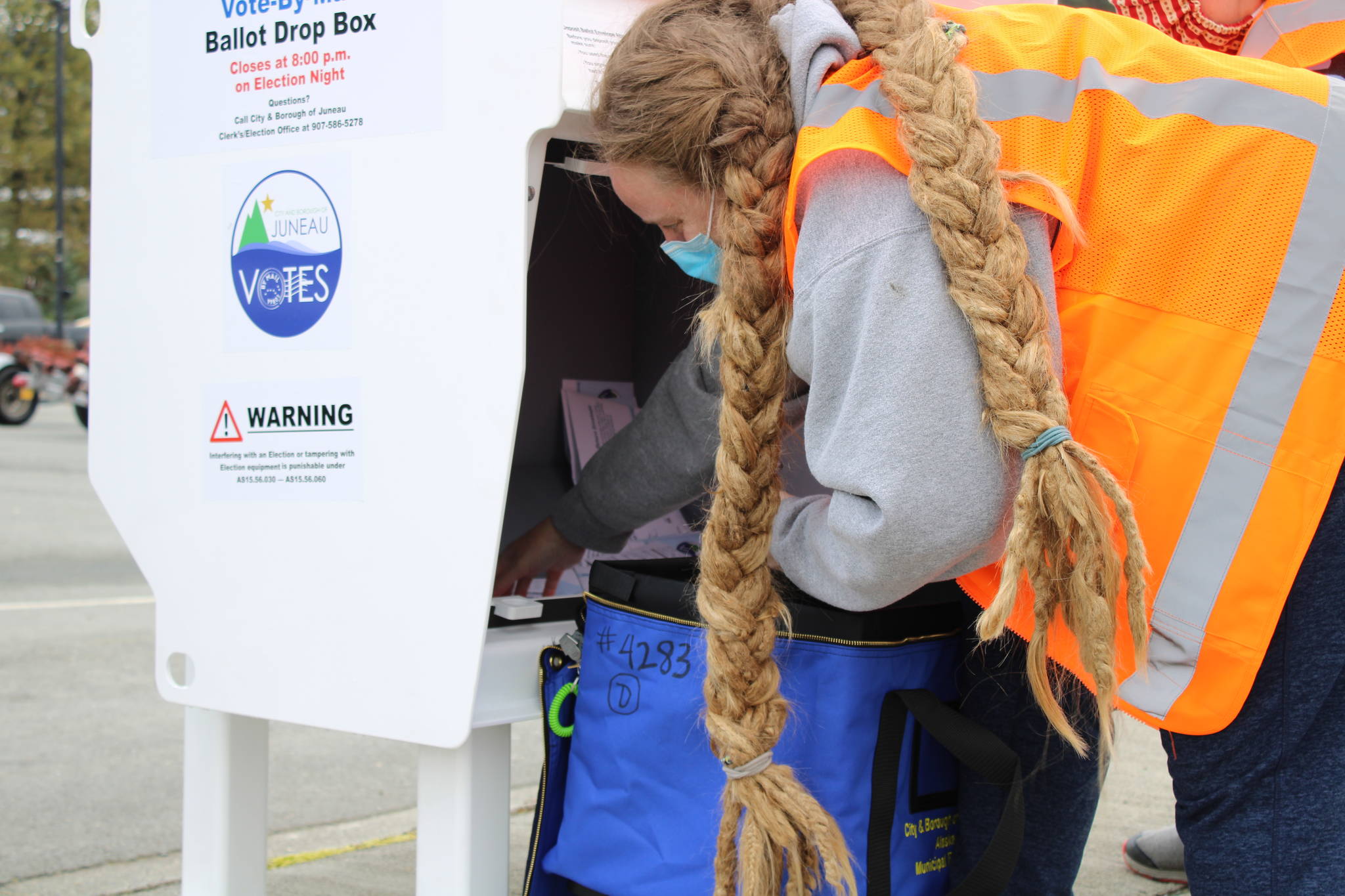Soon, going to the polls in October may be a thing of the past for many Juneau voters.
Future municipal elections in the capital city may be primarily vote-by-mail affairs with the 2020 election serving as a template.
On Monday night, the City and Borough of Juneau Assembly Human Resources Committee passed a motion asking the city clerk to flesh out thoughts around a hybrid election for the Oct. 6, 2021, municipal election. They declined to entertain a motion directing the clerk’s office to look beyond the next election. Since the Assembly doesn’t keep a standing elections committee, the Human Resources Committee became the starting point for the question.
In late February or early March, the assembly’s Committee of the Whole will hear the results of the research and consider the possibilities for the upcoming election.
Why now?
City Clerk Beth McEwen asked the committee to weigh in with direction on the preferred process for future elections, noting that planning for the mayoral election slated for fall needs to begin by April.
McEwen explained that a mail process elongates the election process, requiring earlier filing and taking longer to certify because Juneau doesn’t have equipment capable of locally counting votes cast by mail.
She also said that the assembly had mentioned an interest in pursuing this track based on the successful 2020 municipal election.
“In October 2020, our CBJ Regular Municipal Election was held in partnership with the Municipality of Anchorage (MOA) as a By Mail Election due to the COVID-19 pandemic,” McEwan said in a memo to the committee.
[What to expect during a mail-in municipal election]
Her memo continued, “The increased voter turnout for that election (11,875 ballots cast) spurred interest by the Assembly to look into how CBJ will conduct future elections and whether we should look at poll-based elections vs. by mail elections or a hybrid of the two.”
Before the October 2020 election, all registered voters received a ballot in the mail. The returned ballots were processed by the clerk’s staff in Anchorage on the Municipality of Anchorage’s counting equipment.
“By far, the most gray-hair raising piece of the process was when we surrendered the ballots to Alaska Airlines to take them to Anchorage for counting,” McEwan said.
This vote-by-mail process was a deviation from prior elections and the November state and federal elections in which 13 polling locations were available on Election Day, early voting locations were designated and any voter could request an absentee ballot.
Loren Jones, an assembly member who sits on the Human Resources Committee, voiced his support for a new election process as did the other committee members.
“I would like to see mail-in elections. We had a good experience and our staff has the experience,” Jones said.
Assembly member Greg Smith agreed.
“I’d like to see us move in that direction. It makes sense,” he said before the unanimous vote to proceed.
According to Rorie Watt, CBJ city manager, voting by mail is becoming more common. Though he noted that any election change takes time before it becomes commonplace.
[Candidates, residents, await results from by-mail election]
Logistics and cost considerations
Changing the election process does require some logistical planning and has cost implications.
McEwen explained that to proceed the city must purchase at least two accessible voting machines for use at voting centers and enter into an agreement with Anchorage to use its election center and staffing resources. Conducting elections may require additional staffing in the clerk’s office.
To prepare for the upcoming Committee of the Whole meeting, McEwen said her staff will research voting processes around the state, including their respective success rates, and consider equipment options.
“We will also talk to the Municipality of Anchorage to see if they are willing to repeat the 2020 response,” she said.
• Contact Dana Zigmund at (907)308-4891 or Dana.Zigmund@juneauempire.com.

